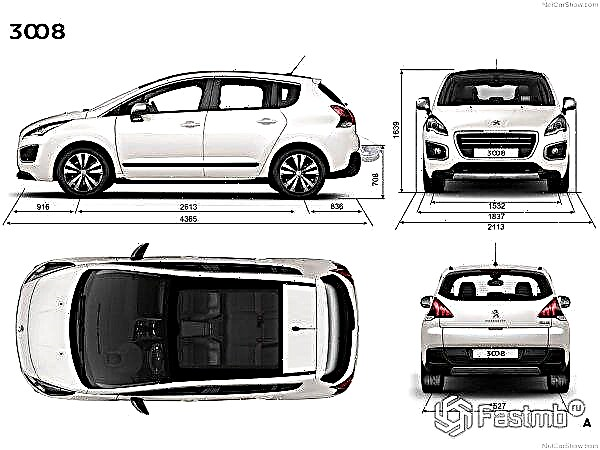

The content of the article:
- The pursuit of cheapness
- Insurance company license
- Selection of insured events
- Who has the right to sign the policy
- Document execution
- Correctness of the entered data
- Car additional equipment insurance
- Confirmation of the fact that the insurance premium has been paid
- Intermediary services
After buying a car, the car owner often draws up an AUTOKASCO policy and decides that now he is protected from the lion's share of problems. The executed document is folded into a folder, and they forget about it until the critical moment when it becomes necessary to pay the sum insured.
And here the car owner may face troubles if he made a mistake when purchasing a policy... There are a number of mistakes that our motorists make with enviable consistency.
The pursuit of cheapness

A common mistake a car owner makes is trying to purchase an insurance policy at the lowest price. The cheaper the insurance, the more likely you are to run into an unscrupulous insurer or even a fake document.
Another side of the issue is the list of exceptions that do not fall under the agreed insured events. The more such exceptions, the cheaper the policy will cost.
If there is a need for a cheaper policy, it is better to purchase a partial comprehensive insurance policy or a policy with a larger deductible.
Insurance company license
One of the common mistakes is negligence in checking the credentials of the office, to which the car owner applies for a policy.
Any insurance company operating in the territory of the state must have a license to carry out its activities. The Central Bank is legally assigned the function of monitoring the status of licensing documents for all Russian insurance organizations.
Insurers have certain powers, and the list of these powers also includes the right to conclude voluntary insurance contracts with citizens. It is under this category that CASCO insurance falls.
Before proceeding with the registration of the policy, the car owner should check whether the insurer has the right to conclude this contract with him. At the request of the client, an employee of the insurance company is obliged to provide a license for review. As a rule, the original document is kept at the head office of the company, but any branch must have a notarized copy of the license.
If the request to show you a license was refused, do not contact the company - the policy issued by it will be no more important than the paper on which it is printed.
Selection of insured events

Often, the policyholder does not fully understand what cases he is insuring against. For example, if the insurance policy states “theft”, then theft of a car or robbery, as a result of which the car owner loses his car, is not covered by this clause.
Decent insurance companies use the term “theft”, which leaves no room for confusion and is universal for theft, theft and robbery.
Difficulties can also arise if insurance is issued for the risk of fire or arson. From a legal point of view, these concepts are also different: a fire occurs due to a car malfunction, and a fire due to the actions of an intruder is already arson.
When issuing a policy, car owners do not always negotiate with the insurer which cases fall under this or that wording.
Who has the right to sign the policy

Continuing the conversation about the verification of credentials, we smoothly move on to another common mistake: we checked the company's license, but did not check who exactly will conclude the contract.
If you come to the company and communicate with its representative regarding the issue of a policy, please note that not all managers are authorized to put their signature on the document. Of course, the head of the company has this right.
But often the volume of documents passing through the company is such that one boss is simply not able to sign all of them. In this case, the right to conclude an insurance contract may be delegated to other employees of the company.
Most often, the following categories of employees have the right to conclude an insurance contract:
- immediate deputies of the head of the company;
- heads of subsidiary agencies and branches;
- heads of insurance departments.
The employee's right to conclude an agreement is confirmed by a power of attorney, which would also be nice to request for review before putting your own signature on the document.
The power of attorney not only confirms the employee's right to conclude insurance contracts, but also specifies the largest insurance amount that may appear in the document signed by this employee.
For example, if you conclude a CASCO agreement for 350 thousand rubles, and the power of attorney states that this employee has the right to take out insurance with a maximum amount of 300 thousand, if it becomes necessary to get money from insurance, you have the right to refuse payment.
When you are provided with a power of attorney (or a notarized copy of it), do not forget to verify the signatures in the policy and the power of attorney in order to exclude undesirable situations when an ordinary employee signs for his boss due to any technical overlaps.
Document execution

The third common mistake is unwillingness to carefully study the purchased document until all formalities are completed and the car owner has left the insurer's office building. No circumstances should prevent the client from carefully studying the papers before leaving the office.
The most important points are the verification of the signature and seal of the insurance organization. The signature, as indicated above, must match the signature on the power of attorney to conclude insurance agreements. The insurer's seal must be "wet", that is, affixed with real ink; the document on which the seal was made using the printing method is invalid.
The signing of original documents and receipts of payment made by facsimile is permissible only if an electronic version of the insurance policy is issued. A document signed by a facsimile may be positioned in court as having no legal force.
The form of the policy may differ in minor details in each specific company. But it must contain a number and a series!
If the document is signed, the managers of the company are obliged to issue it to the car owner along with insurance rules.
The correctness of the data entered into the document

Lawyers keep repeating: "Each letter should be carefully read in the document!" In relation to the CASCO policy, this is no less important than in relation to a document confirming ownership of a home or a passport: one misspelled letter makes the entire document invalid. Car owners often forget about this, and when it becomes necessary to use the policy, they face problems.
Often, citizens do not carefully verify the parameters of the car entered into the contract, its serial numbers. All typos and errors found while studying the document should be corrected. Do not see the manager's assurances that "this little thing does not matter"! Every point has a meaning in a legal document.
According to statistics, if the insurance company refuses to pay out on the policy due to a typo or data entry error, the court, as a rule, takes the side of the car owner. But is it worth the risk and nervousness of contacting the court if you can thoroughly check the document from the outset?
Car additional equipment insurance
When issuing a CASCO policy, car owners often miss such a moment as insurance of additional equipment installed in the car.
If additional equipment is installed in the car, it falls under the protection of insurers only when it is separately accounted for, calculated and entered into the policy. Otherwise, the cost of the insurance claim will take into account only the average price of a car of a given brand and year of manufacture.
Confirmation of the fact that the insurance premium has been paid

Another mistake when buying a policy is a careless attitude to a receipt confirming the fact that cash has been deposited.
The issued CASCO policy becomes valid after the car owner has paid the corresponding insurance premium. The policy must be purchased, that is, paid.
Insurance companies can accept funds both in non-cash form and in cash. When paying by bank transfer, the car owner retains the payment order canceled by the banking institution. It is a big mistake to throw this document away. It is better to keep it together with the policy itself. However, in case of loss of payment, the bank is obliged to issue it again.
But in the case of cash, the situation becomes more serious. Payment in cash implies the issuance by the insurer of an appropriate receipt according to the approved standard of Form 7-A. But if the receipt is lost, the car owner, at best, can be given a copy, and its legal force in court will not be as easy to prove as in the case of the original. Therefore, it is better to keep a receipt for depositing money carefully throughout the entire period of the policy and after - for another three years.
Intermediary services

A common mistake of the insured is the long waiting for the result in case of contacting the services of an unverified intermediary (for example, the broker of the car dealership where the car was purchased).
Experience shows that intermediaries do not take a very responsible attitude, often delaying the delivery of documents to the insurance company for no objective reason. Two or three days after registration, it is worth contacting the insurers and clarify whether all the necessary papers have been delivered to them. If this is not the case, there is no need to wait and listen to endless "tomorrows"; you need to demand that the intermediary immediately fulfill his obligations.
In a situation where an insurance case occurs, and the deadlines for transferring papers to the company are violated, insurers have the right to declare the validity of the insurance doubtful, and then it will be possible to receive money only by a court decision.
Practice shows that an insurance company can provide a lot of legitimate reasons for refusing to pay insurance. But you should not increase this already impressive list by your own inattention to details at the stage of registration of the policy.











